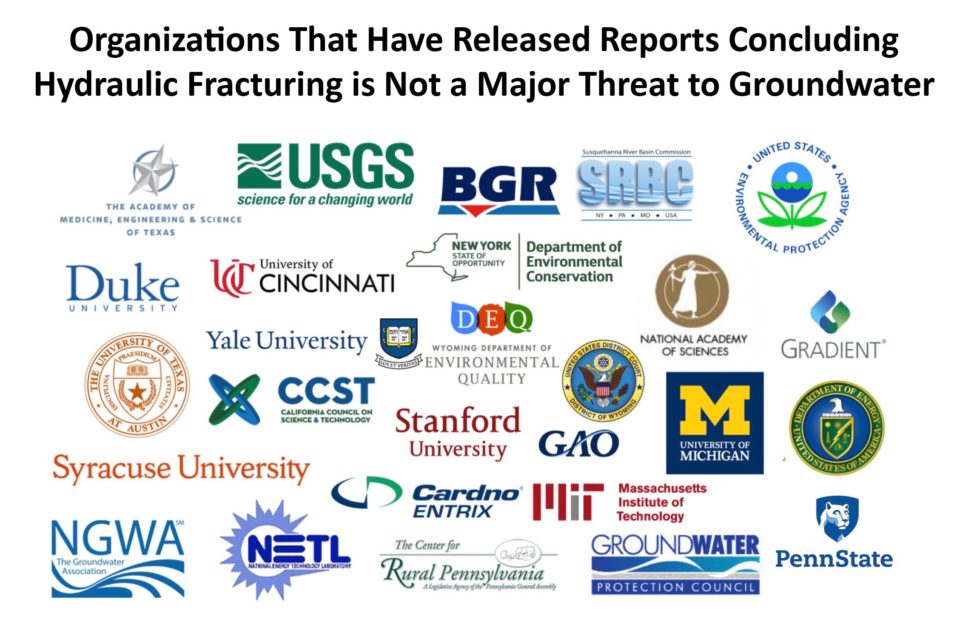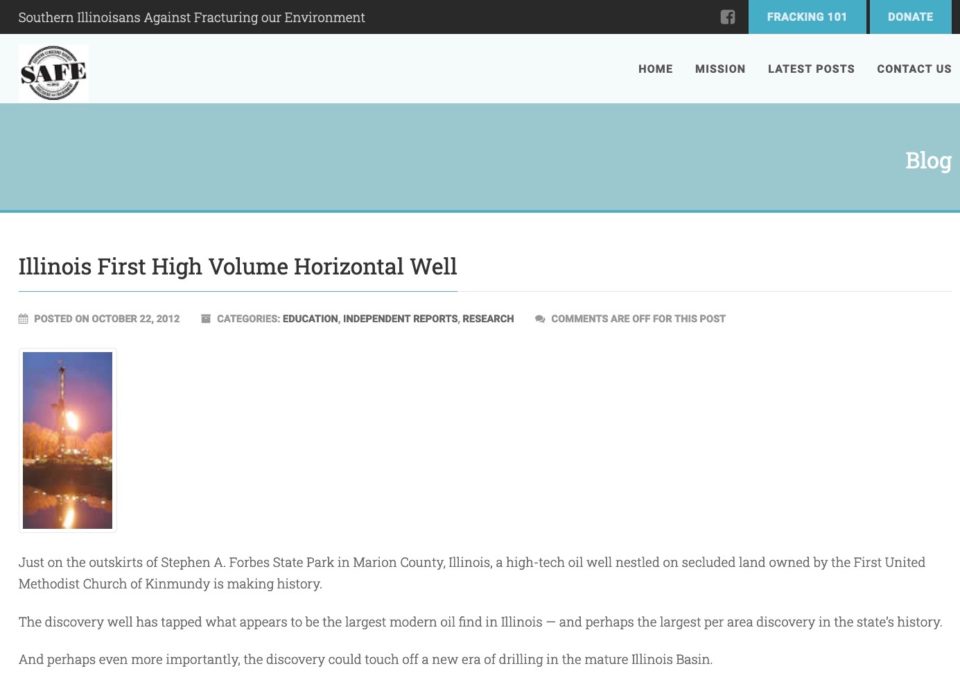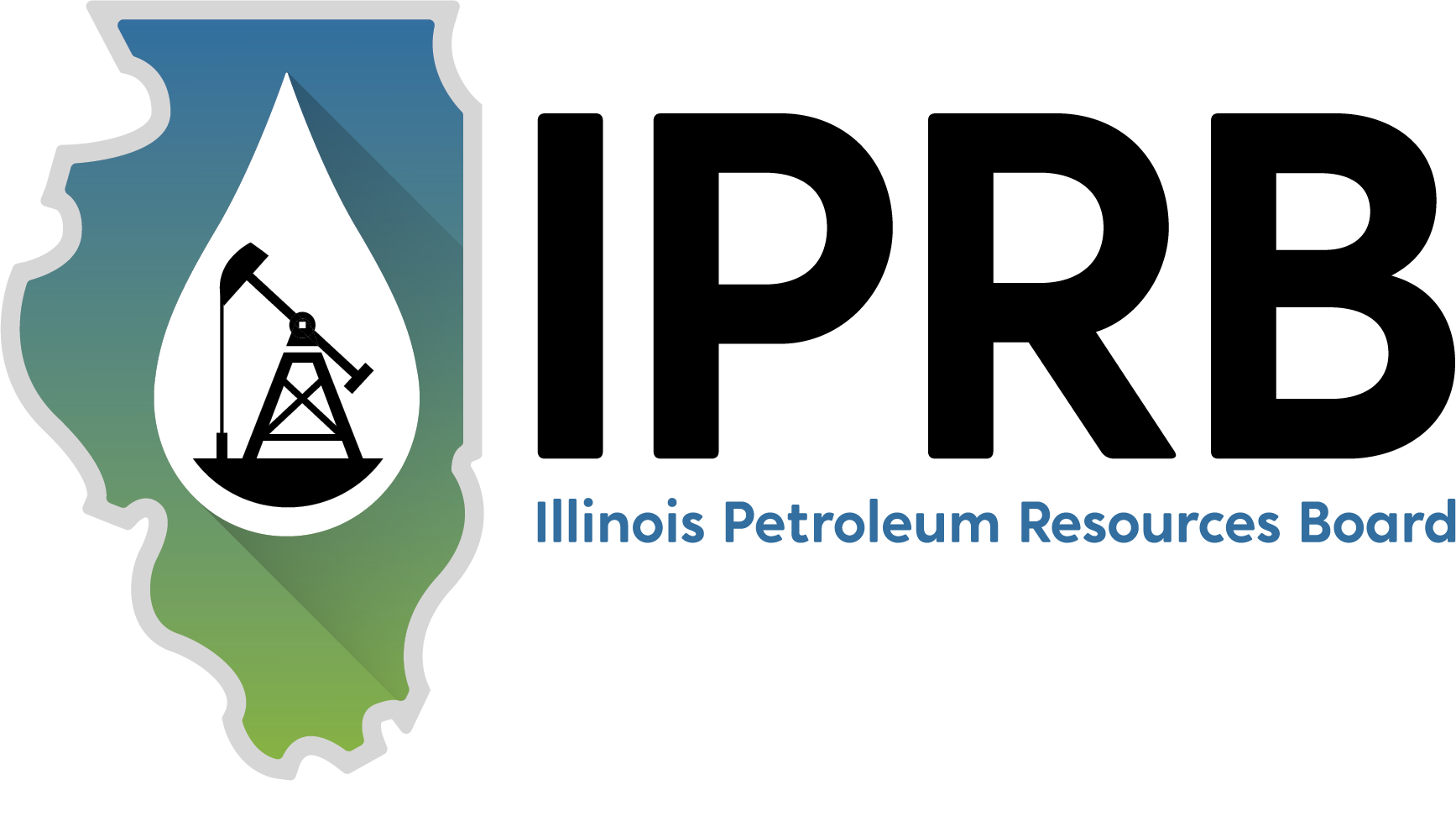What a Fracking Ban Would Mean For Illinois
 Likely Democratic presidential nominee Joe Biden promised “no new fracking” during Sunday night’s debate. Such a policy would have dire economic and environmental consequences for the country as a whole, considering 95 percent of new oil and natural gas wells have to be hydraulically fractured, aka “fracked,” to be commercially productive and increased natural gas use – made possible by fracking – is the primary reason the United States has reduced carbon dioxide emissions more than any other country this century.
Likely Democratic presidential nominee Joe Biden promised “no new fracking” during Sunday night’s debate. Such a policy would have dire economic and environmental consequences for the country as a whole, considering 95 percent of new oil and natural gas wells have to be hydraulically fractured, aka “fracked,” to be commercially productive and increased natural gas use – made possible by fracking – is the primary reason the United States has reduced carbon dioxide emissions more than any other country this century.
But what would a fracking ban mean to Illinois? Though it may not be as obvious as the national impact, a fracking ban would be devastating for the Land of Lincoln as well. Though there has been no high volume hydraulic fracturing conducted on horizontal wells in Illinois – the kind of development most associate with “fracking” – hydraulic fracturing has been safely used to complete thousands of the state’s vertical wells for decades and is used to complete roughly 75 percent of new Illinois vertical wells today. That is why a petition being circulated by the Illinois Coalition Against Fracking (ICAF) that calls for a ban all forms of fracking is a far bigger threat to the Illinois oil production industry than anything that’s being proposed on the national level. From the petition:
“Therefore, we, the undersigned organizations and individuals call upon Governor J. B. Pritzker to use his authority as governor of Illinois to impose an immediate ban on the granting of all new drilling permits for oil and natural gas that use any and all forms of hydraulic fracturing.”
To put it bluntly, three-quarters of potential new Illinois oil wells would potentially never be brought into production should the ICAF’s campaign prove successful. And even more importantly, while a president’s power to ban fracking is extremely limited, governors do sway significant authority – which is why talk of a state-wide ban is a far bigger threat than what is being proposed at the federal level.
A statewide fracking ban would obviously result in a huge economic blow to producing counties in the southern portion of the state, where the industry provides thousands of jobs and millions in annual tax revenues. And it would do nothing to help the state’s overall dire economic outlook, considering the oil production industry has a $3 billion annual economic impact and generates hundreds of millions in state tax revenues.
A fracking ban would effectively be a ban on almost all new oil and natural gas development – and “Keep It In the Ground” groups know that. This is one reason they use the boogeyman term “fracking” to describe anything oil and natural gas related. Though it might appear on the surface that these groups don’t understand the process they’re talking about, they are actually deliberately using the “fracking” label to consolidate the entire industry under a single unpleasant sounding term in an effort to achieve their ultimate objective – a total ban on oil and gas development.
As Daniel Raimi, senior research associate from Washington D.C. environmental think tank Resources for the Future, noted in his 2017 book “The Fracking Debate”:
“… opponents of the fossil-fuel industry writ large often refer to the ‘fracking industry’ instead of the ‘oil and gas industry,’ ‘fracking wells’ instead of ‘oil and gas wells,’ ‘fracking pipelines’ instead of ‘natural gas pipelines’ and so on…”
“If ‘fracking’ refers to the entire set of activities related to oil and gas development, it becomes easier for advocates to argue that ‘fracking’ is the cause of any high-profile case of pollution, whether or not those cases are the result of hydraulic fracturing itself. Pipeline rupture? Blame fracking. Local groundwater pollution from surface spills? Blame fracking.”
“And if the public believes that ‘fracking’ – rather than some more prosaic issue such as a pipeline leak or an oil spill at the surface – causes the damage to human health or the environment, it becomes easier to rally support behind a movement to ban fracking (meaning the discrete process of hydraulic fracturing).”
There are several examples of this tactic being employed by Illinois “Keep It In the Ground Groups.”
The ICAF refers to a “life cycle” definition of fracking as being “the entire above and below ground process of hydro-carbon extraction – from leases and well-site prep through waste disposal and well abandonment – where hydraulic fracturing is employed.” By this logic, one could use the terms “lifetime cycle” of spudding or the “lifetime cycle” of well logging instead, but those types of labels don’t incite negative connotations or garner any media attention.
Southern Illinoisans Against Fracturing Our Environment (SAFE) inaccurately defined fracking in 2018 as follows:
“Hydraulic fracturing, or fracking, is a mining technique that involves drilling deep into the earth, turning the drill bit 90 degrees and then drilling horizontally into rocks that contain little pockets of oil and gas…”
SAFE is obviously describing horizontal drilling, which is in no way shape or form hydraulic fracturing. For those unfamiliar with hydraulic fracturing, it is actually a well completion process that occurs after drilling has been completed and involves pumping fluid — typically 99.5 percent water and sand, with an additional mixture of chemical additives — into the target formation at pressure in order to open up small fractures and allow oil and gas to flow through the rock.
In another example of this deliberate conflation of horizontal drilling and fracking, SAFE describes in this blog post that the directional discovery well (Warren No. 1) drilled under Forbes Lake in Marion County in the early 2000s as being Illinois’ “first high volume horizontal well.”
 In reality, there was no high volume hydraulic fracturing – or any hydraulic fracturing at all, for that matter – conducted on this well.
In reality, there was no high volume hydraulic fracturing – or any hydraulic fracturing at all, for that matter – conducted on this well.
Though the manipulation of the proper definition of hydraulic fracturing is infuriating to some, it is more important to realize that the overall goal is to ban all oil and natural gas development, period. In today’s era of misinformation overload, the moniker “fracking” – like it or not – essentially translates “oil and gas.” And these groups are fully aware that a ban of the actual hydraulic fracturing process that they deliberately try to confuse the public and politicians about would, ultimately, undermine the entire industry.
The is why ICAF petition should be viewed not only as existential threat to any potential high volume hydraulic fracturing of horizontal wells in Illinois, but a threat to the state’s oil production industry in general.
